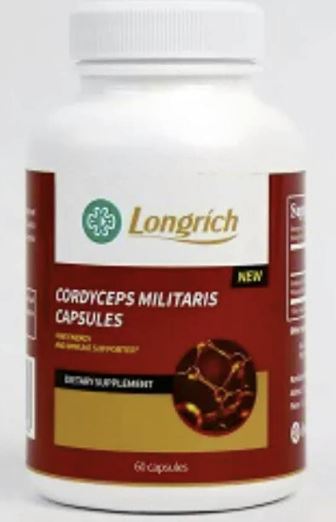Male Infertility – Low Sperm Count
Male infertility is a condition in which a man is unable to father a child due to problems with his sperm. There are many potential causes of male infertility, and the most common include low sperm count or low sperm motility, and abnormal sperm shape or structure. Others are ejaculation disorders, hormonal imbalances, and lifestyle factors.
Low sperm count or low sperm motility:
Sperm count refers to the number of sperm present in a man’s ejaculate, and sperm motility refers to the movement of the sperm. Low sperm count or low sperm motility can make it difficult for a man to father a child, as there may not be enough healthy sperm present to fertilize an egg.
Abnormal sperm shape or structure:
Sperm are highly specialized cells that are designed to swim to the egg and fertilize it. Abnormalities in the shape or structure of the sperm can make it difficult for them to swim effectively and reach the egg, which can make it difficult for a man to father a child.
Low Infertility: Ejaculation disorders:
Ejaculation disorders can also be a cause of male infertility. These disorders may be related to problems with the prostate or other reproductive organs, or they may be caused by nerve damage or other underlying health conditions.
Hormonal imbalances:
Hormonal imbalances can also contribute to male infertility. For example, low levels of testosterone or other hormones may affect a man’s ability to produce healthy sperm. In addition, problems with the pituitary gland or other hormonal disorders can also lead to male infertility.
Other causes of male infertility are:
- Genetic disorders
- Chronic health conditions such as diabetes or obesity
- Alcohol, tobacco, or drug abuse
- Environmental exposures (e.g. to pesticides or heavy metals)
- Age (male fertility tends to decline with age)
It’s important to note that male infertility is often treatable, and there are many options available to help men overcome fertility problems. Treatment may include medications, surgery, or other therapies, and may be more successful if the underlying cause of the fertility problem is identified and addressed.
Lifestyle factors that can contribute to male infertility:
- Smoking: Smoking has been linked to a number of health problems, including male infertility. Studies have shown that men who smoke may have a lower sperm count and lower sperm motility than non-smokers.
- Alcohol consumption: Excessive alcohol consumption can also affect male fertility. Alcohol can interfere with the production of testosterone and other hormones that are important for sperm production, and it may also damage the DNA in sperm.
- Drug use: Some drugs, including anabolic steroids and certain medications, can affect male fertility. These drugs may disrupt the production of hormones, damage the testicles, or affect the quality of the sperm.
- Obesity or being underweight: Being overweight or obese can contribute to male infertility, as excess weight can affect hormone production and cause problems with sperm production. On the other hand, being underweight can also be a factor in male infertility, as being underweight can lead to hormonal imbalances and affect sperm production.
- Stress or emotional issues: Stress and other emotional issues can also affect male fertility. Stress can disrupt hormone production and affect the quality of sperm, and it may also make it more difficult for a man to get or maintain an erection.
- Environmental exposures: Exposure to certain environmental toxins, such as pesticides or pollution, may also contribute to male infertility. These substances may affect hormone production or damage the sperm.
Treatment: Male Infertility – Low Sperm Count
It’s important to note that male infertility is often treatable, and there are many options available to help men overcome fertility problems. Treatment may include lifestyle changes, such as quitting smoking or reducing alcohol consumption, as well as medications, surgery, or other therapies. There are Longrich supplements that have proven to work for many people who have male infertility and low sperm count issues. Some of the supplements are Libao now rebranded as LoePower capsules and Seabuckthorn Berry Oil
Male Infertility – Low Sperm Count
Libao (LeoPower Capsules):
- This product is specially formulated for men to improve sperm count.
- Helps to prevent sperm aging in men
- Increases sexual performance of patients with low libido
- Strong Erection Booster
- Ideal for men with quick tiring body
- Eliminates fatigue
- Improves sleep
- Strengthens the immune system and the activities of sperm
- Improves the functioning of the male reproductive system in all ramifications
- Slows down aging and weakening of the body to ensure good health and longevity
- Used to treat impotence, kidney disease, chronic inflammation of the testicles
- Corrects and treats fertility problems in men
*Take 4 capsules at night
Seabuckthorn Berry Oil:
- Cardiovascular Health: beneficial for cardiovascular health. The oil’s high essential fatty acid content helps balance cholesterol levels, reducing the risk of heart disease. Additionally, the oil’s anti-inflammatory properties can help to reduce inflammation in the blood vessels, promoting healthy blood flow and reducing the risk of cardiovascular disease.
- Healing Process: aids in the healing process. The oil’s high content of antioxidants helps to reduce inflammation and protect the body from damage caused by free radicals. Additionally, the oil’s anti-inflammatory properties can
- Protection against Toxins: protects against toxins. The oil’s high content of antioxidants helps to protect the body from damage caused by toxins and pollutants, reducing the risk of chronic diseases such as cancer and heart disease. Additionally, the oil’s anti-inflammatory properties can help to reduce inflammation, promoting overall health and wellness.
- beneficial for individuals with neurological diseases such as Alzheimer’s and diabetes. The oil’s high content of antioxidants can help to protect the brain and nervous system from damage caused by free radicals, reducing the risk of neurological diseases. Additionally, the oil’s anti-inflammatory properties can help to reduce inflammation in the brain and nervous system, promoting overall neurological health.
*Take 3 in the morning after breakfast and 3 in the evening after meal / before bedtime






